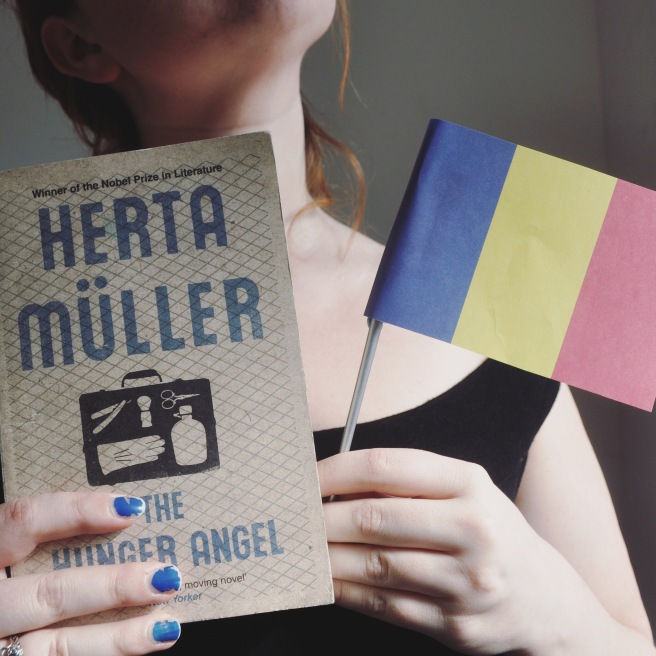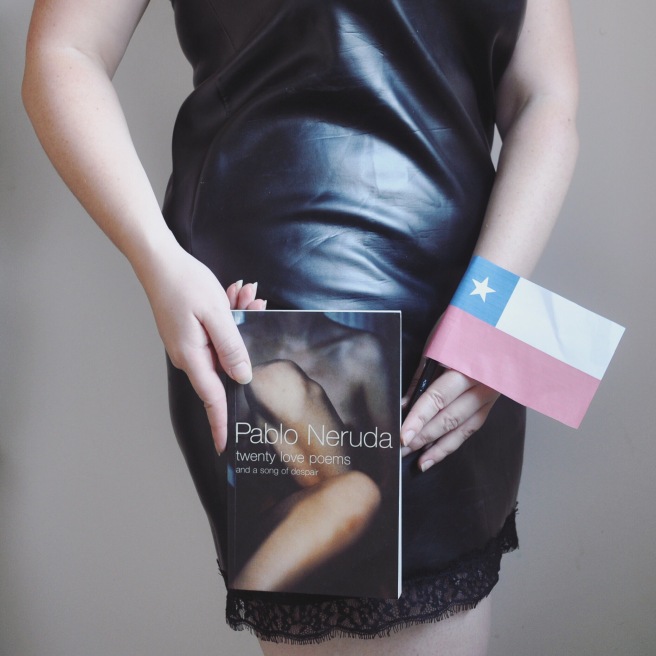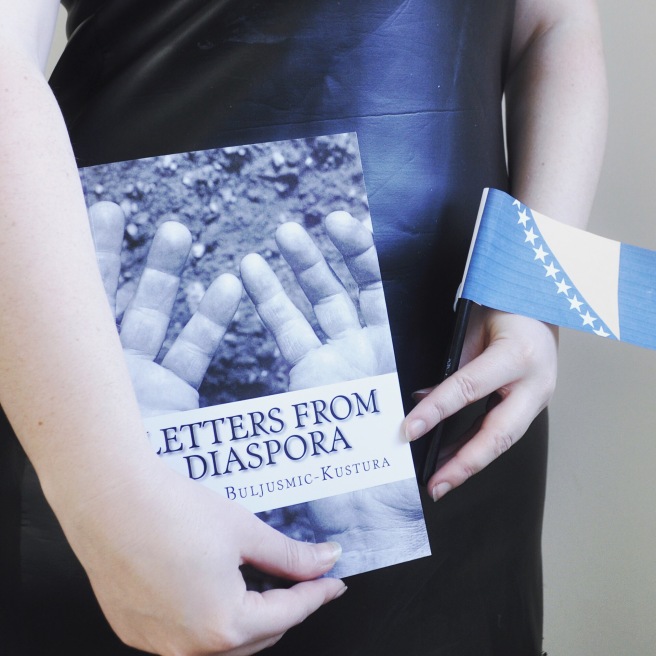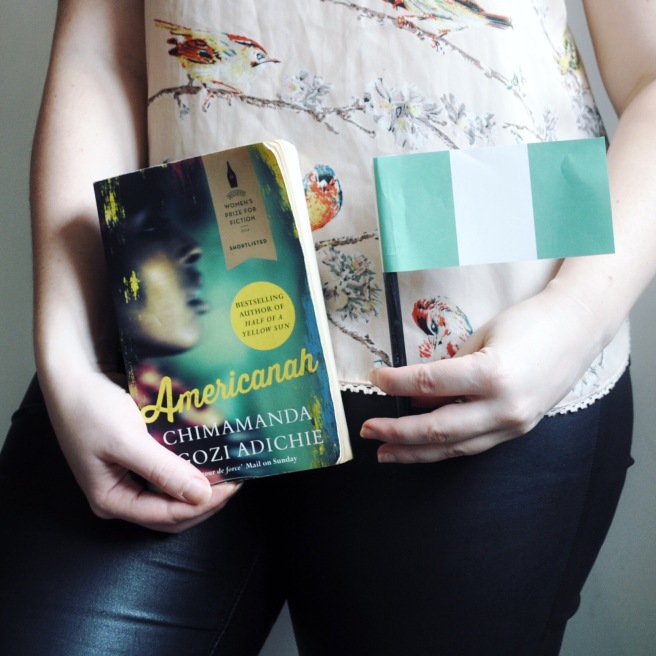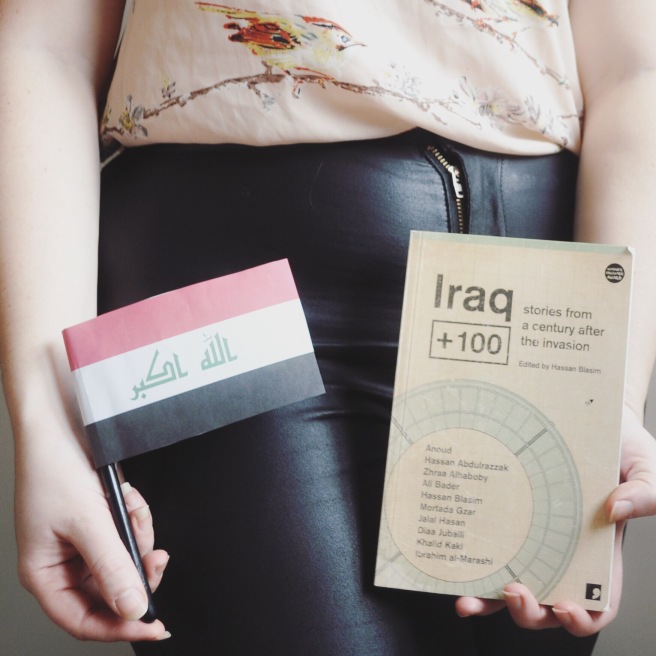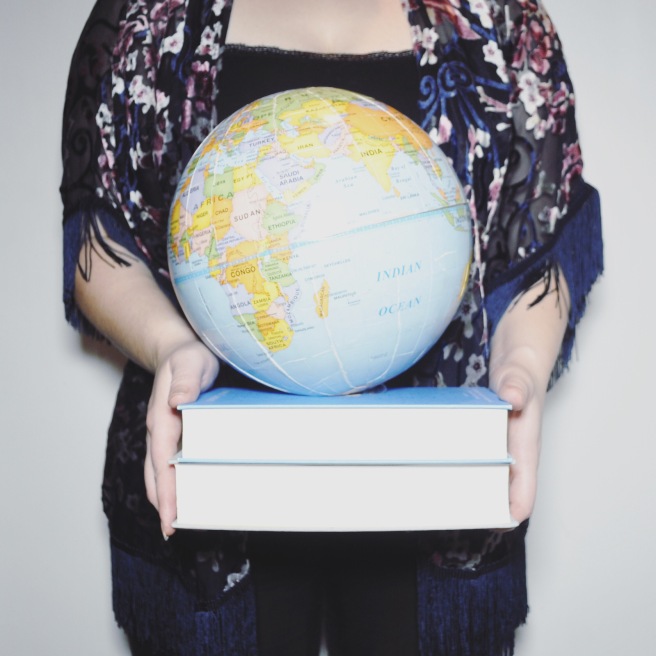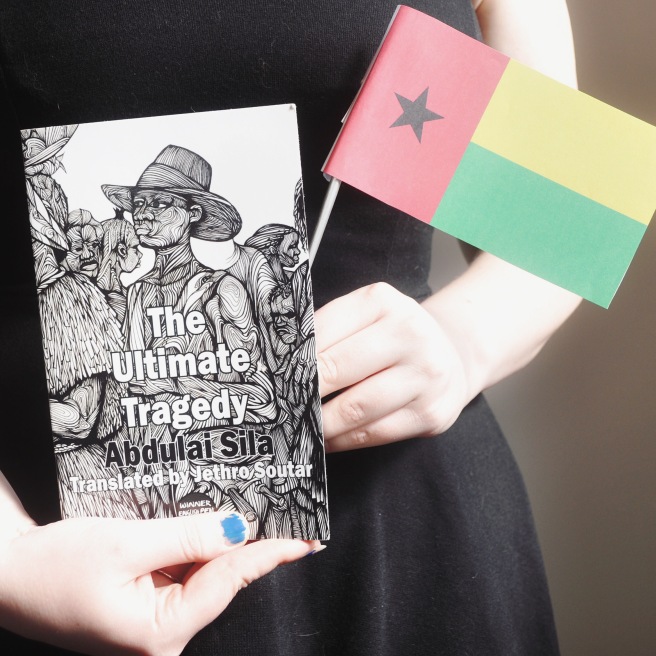
It’s been a while since I talked on here about my Read the World Project but I have been making some progress. I finished two books this week (and have another two, I believe, I’ve yet to review) and have another two on the go for this week. I turn 26 in five days, which means I’ll have four years left to finish (if I’m going by my arbitrary 30 deadline.)
I was really chuffed to find The Ultimate Tragedy. Someone I follow on twitter mentioned it and I immediately pre-ordered it with the knowledge that, as it stands, it is the only book to have ever been translated in to English from Guinea-Bissau. When I looked in to it further I found out that Abdulai Sila actually published the first novel in Guinea-Bissau (not this one, his first novel- Eterna Paixão.) So I was excited to start! I was also really drawn to the starkness of the cover; I love the artwork Dedalus Africa chose for it.
The Ultimate Tragedy revolves around Ndani- a poor, young black girl coming to Bissau in the hopes of finding employment in a white household at the suggestion of her closest friend, her stepmother. Her home village rumours her to be cursed and the white family who employ her treat her cruelly. As the story progresses Ndani is cast out and then taken as the wife of a local leader in her home village, who hopes to humiliate the Portuguese administrator with a show of his wealth. Over time she falls for an educated teacher at the local school but the Portuguese colonisers seek to quash any hope in the black locals.
It’s a surprisingly short book for one that takes place over such a long period of time, it’s only 187 pages in total, but Abdulai Sila fits in a lot of plot. His first novel, I believe, criticised the government of the newly formed Guinea-Bissau, whereas The Ultimate Tragedy shows the growing challenge towards Portuguese colonial rule as well as the corruption and racism inherent in the political system.
I absolutely loved this book. I’m so glad that it was translated (recently- my paperback edition was published in early April of this year) because it gave me a great- but brief- insight in to a country that I know very little about. It also didn’t hold back- this isn’t a book written with a European or US publisher in mind- it’s rightly harshly critical of European colonial rule and the hypocrisy of white colonisers treating native black African people like the ignorant. There’s love here, but also political commentary and, surprisingly, humour. Less humourous, and I will provide a TW here, is the inclusion of a rape scene that takes place- literally- behind closed doors, so please be aware of that.
So, yes, go read this powerful insight in to Guinea-Bissau!
(I also found my book for Equatorial Guinea thanks to the translator of this one! It’s on its way!)
